Why do all the best films come out in the space of three months?! My wallet and I wish the studios would space them out equally over the course of a year, but there is something fitting about the quality of cinema climbing as we approach our holy days. Here are some mini reviews of the 2015 awards season films I’ve seen so far.
Sicario
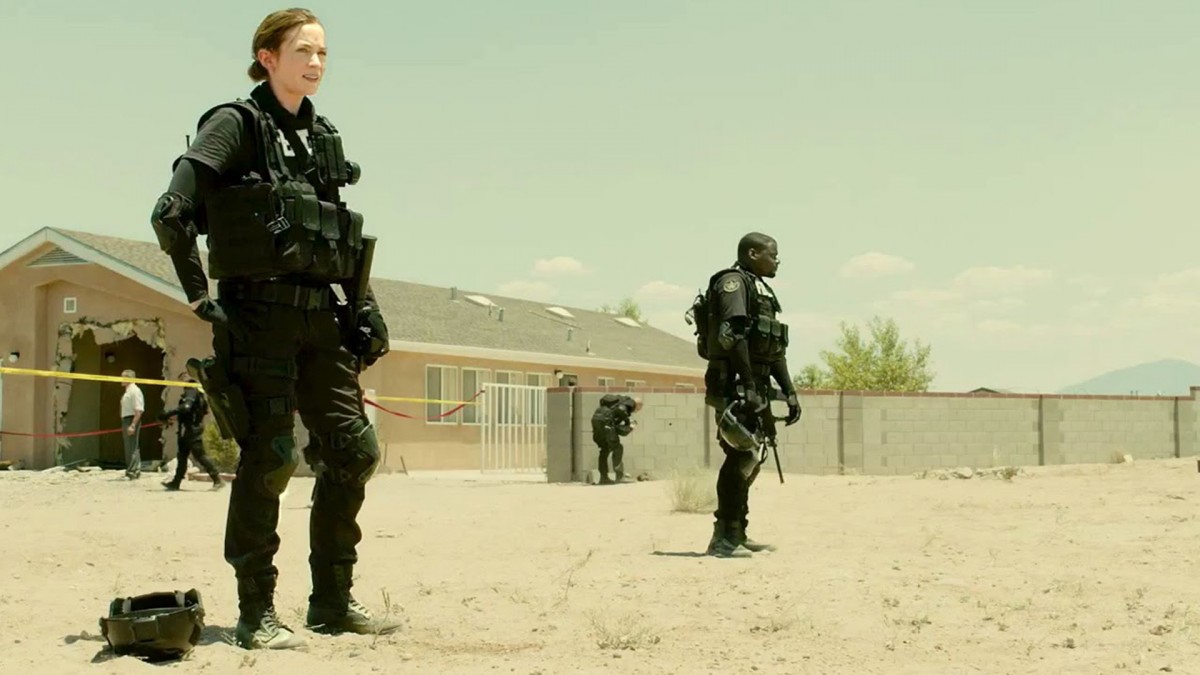
Every once in a while I see a film that already feels like a classic, and Sicario is one of those kinds of films. Emily Blunt plays FBI agent Kate Macer who is frustrated by the violent drug crimes she encounters daily in her hometown.
After a particularly violent encounter she gets pulled into America’s chaotic war on Mexican drug cartels by careless CIA contractor Matt Graver, played by Josh Brolin. Graver doesn’t seem to take his job very seriously: he wears flip flops and Hawaiian shirts, takes long naps between dangerous missions and jokes around in warzones–not the best guide to a world Kate has never experienced before. Both he and Kate follow leads on both sides of the border given to them by the enigmatic Alejandro, played with amazing subtlety by Benicio Del Toro, an expert in the field who may not be trustworthy. He is kind and gentle but prone to fits of violence, and there’s something in his eyes. All three actors deliver killer performances and the plot twists and turns until everything is thrown on it’s head, leading up to a devistating and poetic final scene. I don’t want to give much more away, so if you can handle some violence and language, watch this film! The screenplay is tight, the acting brilliant, and the cinematography and music are almost perfect. One of my favorite films of the year so far!
Black Mass
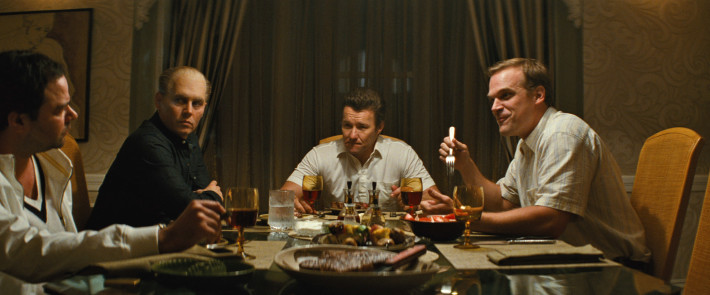
Compared to classics like The Godfather and Goodfellas, Black Mass is middling mobster film. It’s not bad, but it’s not that great either. Johnny Depp plays Whitey Bulger, a real life Bostonian mobster who the FBI turned a blind eye to for decades in return for his informing on other mobs. It’s a dark and scandalous story, and one that deserves to be told, but I felt that the script was a little too on the nose. Characters often deliver dumbed-down exposition rather than realistic dialog and the film never seems to know weather it wants to idolize or demonize Depp’s Bulger, who seems to be really enjoying all the makeup and scenery chewing. The slow moral decay of Bulger’s friend and FBI agent John Connolly–played by Joel Edgerton–who was largely responsible for allowing Bulger’s reign of terror, is well rendered and brings a little more meat to the proceedings, but the final product is nothing to brag about.
Crimson Peak
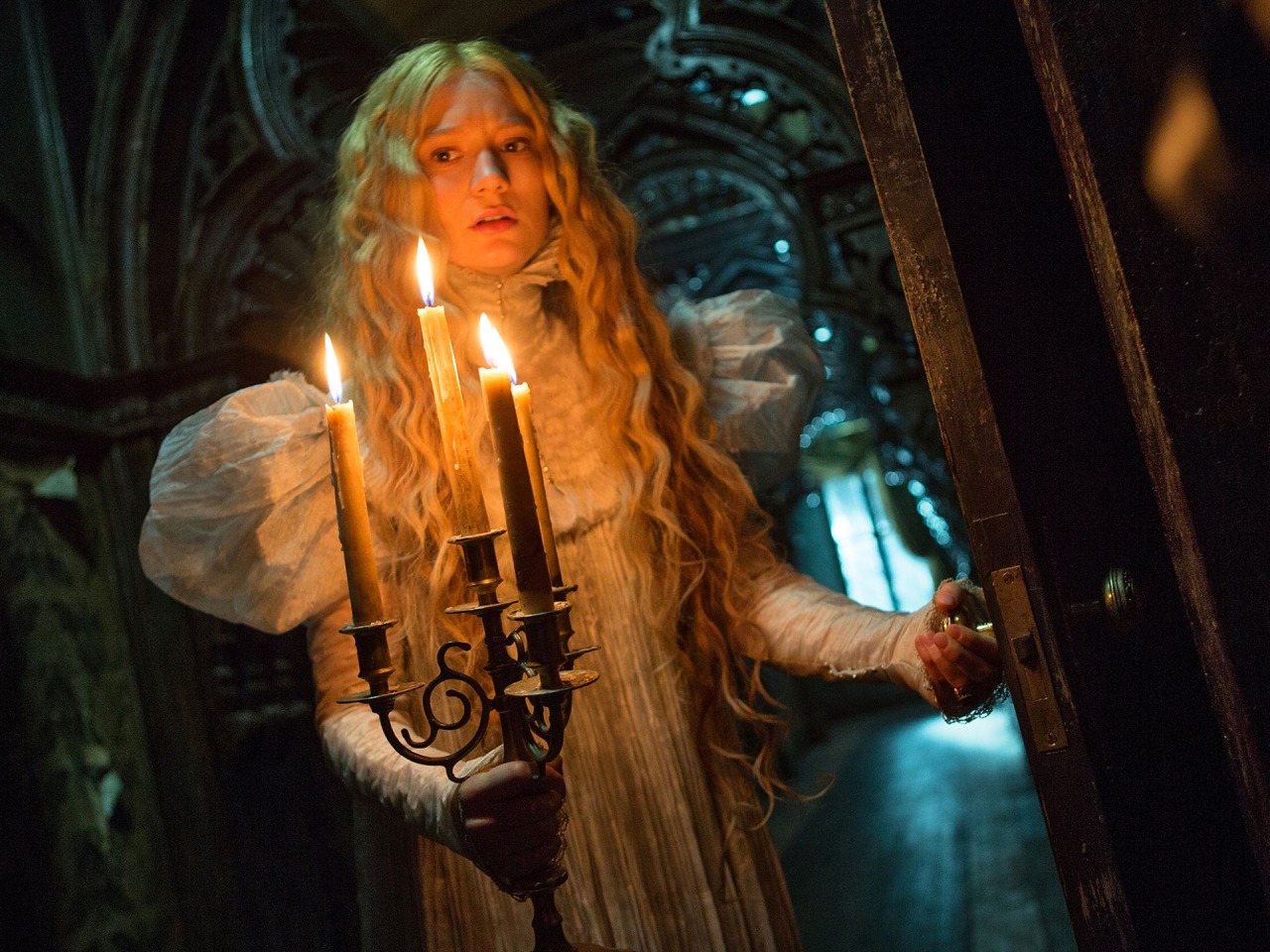
The good thing about Crimson Peak is it’s the most accurate screen representation of Gothic horror I’ve ever seen. The bad thing about Crimson Peak is it’s the most accurate screen representation of Gothic horror I’ve ever seen. I’m a big fan of director Guillermo Del Toro. His Pan’s Labyrinth is one of my favorites, and I also have a soft spot for his first Hellboy film. Del Toro understands the importance of good art design in fantasy filmmaking and its clearly the star here–every inch of each set is intricately detailed, colored and lit, and the sets in general just thrum with energy. The actors inhabit these spaces competently, and the story is well told and paced, but I guess I just find Gothic horror a bit silly. In this genre the twisted passions and dark desires of human characters are supposed to be more haunting than anything the supernatural world can cook up, and Del Toro dutifully plays by this rule book, clearly loving the genre he’s paying such close homage too, but I just can’t get on board. What the filmmaker finds romantically haunting I find simply base. Sin is sin, whether it takes place in an dirty alley or an elaborate mansion, and in either case it’s fairly easy to understand, not half as dark or deep as Gothic horror or Del Toro claims it to be.
Steve Jobs
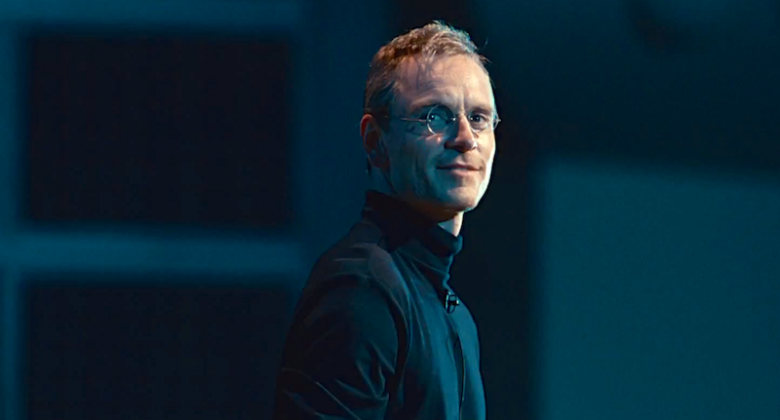
I love screenwriter Aaron Sorkin’s style of writing. It’s super brainy and jams as much info into as little space as possible. It was perfect when paired with David Fincher’s sense of style and directing in 2010’s The Social Network, and it also works remarkably well in Danny Boyle’s new film Steve Jobs. The film centers on the infamous titular character as he navigates the relational complexities and pitfalls–many of which he was personally responsible for–of his work and social life as he also attempts to prepare for three milestone product launches: The Macintosh, The NeXT, and the iMac. These three extended yet fast paced scenes make up the entirety of the film following Jobs as he strides from room to room and converses and argues with character after character–it’s as if the conflicts of his entire life have been compressed into three moments in time. It’s certainly not a realistic approach, and often feels like a CliffsNotes of Jobs’ biography rather than a dramatic film, but it still somehow all works. Michael Fassbender is pitch perfect as Jobs and Alwin H. Küchler’s warm and often abstract cinematography, shot on grainy film, just sings. When I left the theater, I felt like I knew Steve Jobs, if not liked him, better. The ending is a bit of an emotional cop-out, but I’ll let it pass. If you’re at all interested in this guy or the history of Apple computers, this film is a must watch.
The Martian
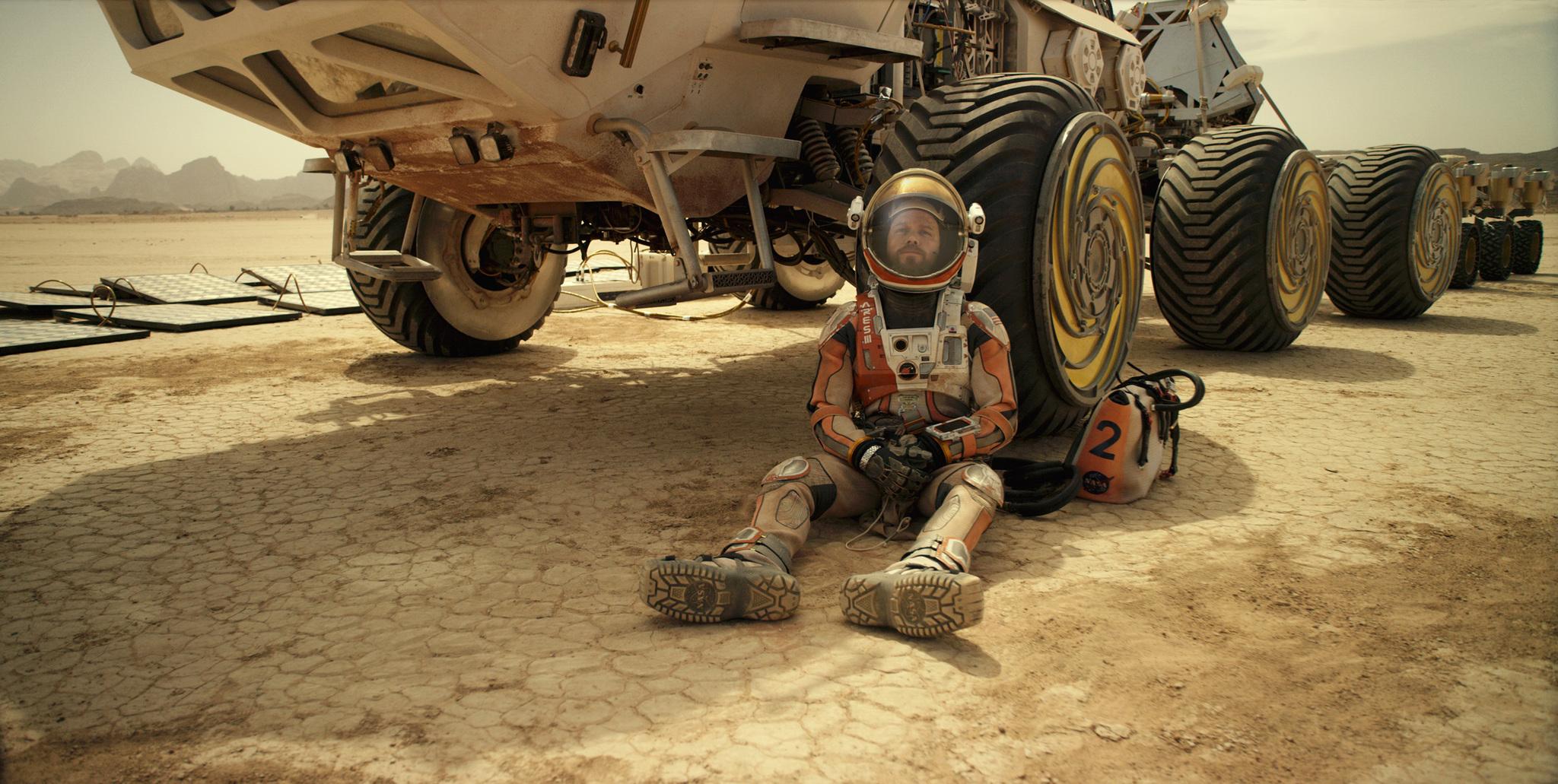
In the future the U.S. apparently has an elaborate and well funded space program and is running regular missions to Mars. An astronaut, played by Matt Damon, gets left behind in a storm and the rest of the film is about the elaborate attempts to “bring him home.” The Martian is the hardest of hard science fiction. Not once is the beauty or magic of space pondered–everyone is too busy talking shop. Damon keeps a regular video journal as he walks us through his attempts at survival as our NASA friends back on Earth have long discussions in board rooms about travel times and trajectories. It all sounds a bit dull but its actually a lot of fun. The characters aren’t complex, but their banter is well written and the audience is on board because the situation is so desperate. I heard someone say recently that The Martian is the kind of film America would make if we were a communist country: a film about a group of people more interested in their country’s success than their personal lives who selflessly band together to solve an overwhelming problem. It’s kind of true and feels unrealistic in our current self-obsessed culture, but it’s not a bad sentiment. We’ve never been Red, but we used to be a little more selfless.
